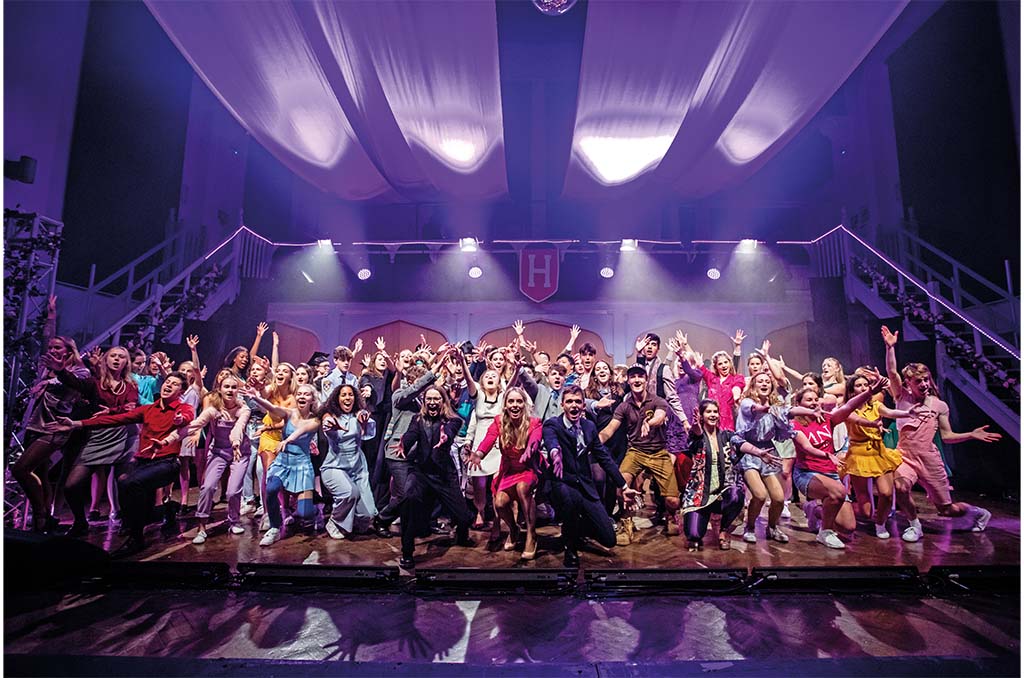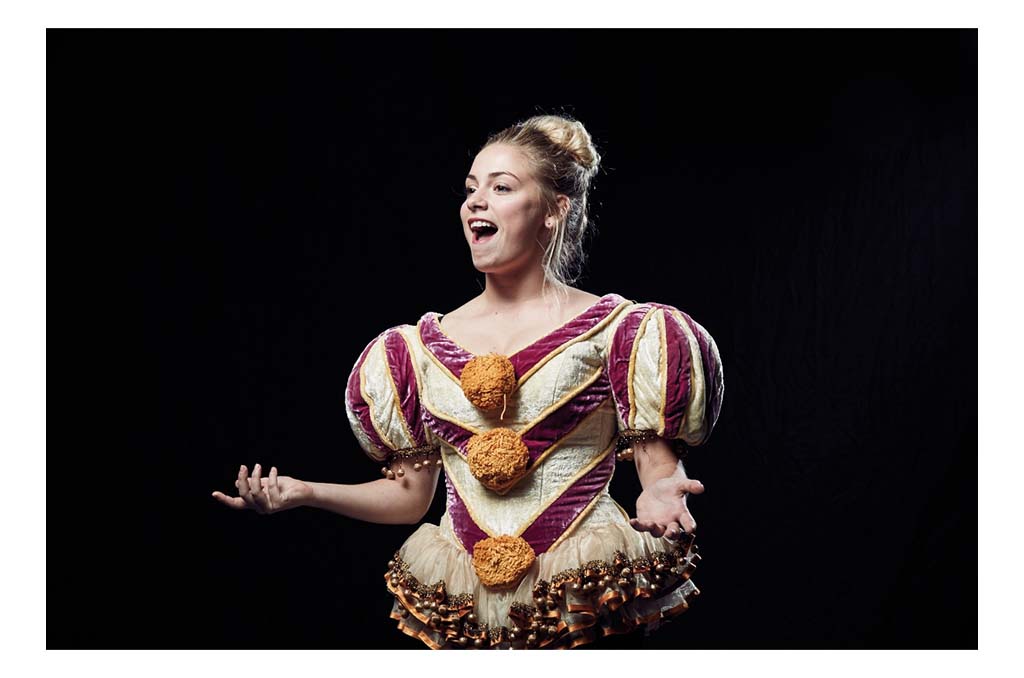Music to Our Ears
By
3 years ago

From music tech to jazz bands, harpsichord to opera class – in the post-lockdown quiet, schools are turning up the volume, says Emma Reed.

‘Music has a power of forming the character and should therefore be introduced into the education of the young.’ Aristotle’s words, as ever, have stood the test of time. One of the reasons why parents choose independent education for their children is the range of musical opportunities on offer and the value placed upon music.
Imagine a school without the cacophony of an orchestra warming up, the soaring notes of a choir or the jolt of an electric guitar from the school band jamming during break. Almost impossible. Yet schools fell eerily silent during the pandemic. Teachers faced huge challenges finding ways to keep the musical heartbeat of their schools going. Something that thrives on physical proximity was driven to solitary rooms. What lessons did music teachers themselves learn about how to keep their pupils engaged and how do they continue to nurture an enthusiasm for music?
Jason Mathias, director of music at Brighton College, East Sussex, hasn’t found nurturing a passion for music a problem. Quite the opposite. Despite Brighton having more than 25 music ensembles, more than 500 pupils taking music lessons and its Music School named as one of the UK’s best buildings by the Royal Institute of British Architects, Mathias says the appetite for music is bigger than ever after the experiences of lockdown. ‘Pupils were coming in so excited,’ he says. ‘Everyone realised how important it was, how much they had missed it and wanted to take part in concerts.’
Mathias believes that empowering the pupils themselves keeps them musically switched on. He literally hands them the baton. ‘When we get to a tricky part of the music in our orchestra, I ask who would like to have a go at conducting. Bringing up different pupils and giving them a chance to take the lead and conduct their peers boosts their confidence. The other pupils concentrate more, are inspired to have a go themselves and it’s much more entertaining.’ This autonomy also extends to pupils in Years 10 and 12 who take the lead in planning and hosting music sessions for pupils from local primary schools.
Music is for everyone, Mathias explains: ‘The wellbeing side of it, I think, far outweighs someone getting a Grade 8 distinction.’ He organises a soloists’ recital aimed at those who aren’t formally part of an ensemble or taking music lessons at school, but who may just enjoy playing their guitar at home.

The idea that it can be a tool to bring the school community together, is something that Andrew Kennedy, director of music at Uppingham, Rutland, espouses. He joined Uppingham in September 2019 directly from a successful career as an opera singer. The enthusiasm Kennedy brings is also the result of being a former music scholar at the school.
His switch from the stage to the school couldn’t have come at a more challenging time. However, during the pandemic and the lockdowns as everything shifted online, he, along with many other heads of music, saw how embracing the technology could benefit everyone. ‘We’ve all had to get to grips with technology,’ Kennedy says, ‘and I think it’s fundamentally changed music itself. You have to have so many tools available to you because the industry is fickle, and I think it’s so important that the training of our young musicians reflects that so you’re giving them the widest possible scope.’
A tradition of musical excellence is firmly established at many of the top independent schools, but it’s the ability of teachers to embrace music tech and to recognise the increasingly fluid boundaries between the different styles of music, that enables them to ignite enthusiasm in their pupils. ‘We opened up a record label last year which is exciting,’ says Kennedy. ‘It gives people – not only rock but classical musicians, too – a chance to record their own disc and engage with the whole digital process. We’ve also got a professional studio engineer to help with this. We’re looking for different sorts of musicians because I think to be a musician is a multifaceted thing. Now, you have to be.’
When interviewing potential music scholars at Brighton College, Mathias has noticed more asking about the tech available to them. ‘We do have a music studio and we have all the software systems such as Logic and Cubase, so anyone who wants to record their own compositions in a professional way can do so.’

It’s not just senior schools, prep schools too have responded to change to inspire their young charges. Dr Elizabeth Blackford, director of music at The New Beacon School, Kent, agrees. ‘We have learned to harness the power of music technology to help us find new ways of creating music.’ While they are back to live events, Blackford highlights that the practice of using Zoom to broadcast live events to wider family internationally is a positive outcome that’s here to stay.
Neil Hornsby, head of contemporary music at Bedales, Hampshire, believes a certain amount of discipline is required in making use of tech to inspire his students. ‘For every artist who is discovered on the internet there are a hundred thousand who just get ignored. I keep my students busy at school with great shows and video projects.’ Hornsby found that lockdown turned out to be a special time for his department. He got in touch with former pupils who were working in the music industry and at a loose end and created some online projects with them. ‘It really gave everyone a sense of purpose. It opened up a new way of doing things and we’ve never looked back.’
Hornsby’s own experiences drive his passion to inspire his pupils. Prior to becoming a teacher, he went to the Royal Academy of Music as a classical guitarist, but felt he lacked direction.
‘When I see students now who clearly have talent, it’s my passion to make sure they don’t end up wasting their time. It’s really about supporting and mentoring them rather than telling them what to do.’ However good his pupils might be at music, Hornsby expects them to be disciplined and to excel in everything. He arranges for successful people in the industry to talk to his pupils to illustrate that ability alone is worth nothing without hard work and discipline. Enthusiasm for music is a reciprocal relationship and teachers are equally inspired by their pupils. ‘There are lots of fun ideas and creativity that’s all led by the students and I’m always looking to push on and try new things,’ Hornsby says.

Hurtwood House, Surrey, puts creativity and performance at the very centre of what it does. Head of performing arts, Doug Quinn, singles out Hurtwood’s ‘industry standard approach to making music’. The number of students taking Music Technology A-level is higher than ever. Guest vocalists work with the students on Project YouTube, regular lunchtime concerts and DJ sets take place, and the school has recently launched its own record label.
The latest tech is available, and support is plentiful. ‘Award-winning composers and alumni sound designers often come back to mentor and inspire the future generation. It is these industry connections to music that really help us stand out from the conventional approach to music practice,’ states Quinn.
The divisions between the musical boxes people were previously put into, such as classical versus contemporary, are blurring and good teachers are astute in encouraging pupils to learn things from all disciplines. Yat-Soon Yeo who teaches music at Ashbourne College, London, has seen the benefits of this. ‘Last year I had a class where two students were hoping to pursue studies in classical opera.
‘Their discussions about Mozart’s The Marriage of Figaro were enlightening. The rest of the class included a contemporary music theatre specialist, a violinist and a dancer. Each was able to bring illuminating angles to the experience of performing.
‘This year, one small class I teach consists of a rock guitarist and a harpsichordist. They have already learned so much from each other, and I from both of them.’
Cellist Yo-Yo Ma captures the significance of the role of music in our schools. ‘Music enhances the education of our children by helping them to make connections and broadening the depth with which they think and feel,’ Ma says. ‘If we are to hope for a society of culturally literate people, music must be a vital part of our children’s education.’
The heads of music I spoke to for this piece were positively fizzing with energy and passion. It’s easy to see how this translates to their pupils. The school music rooms may have been quiet for a spell, but music never stopped for them. It just got better.
READ MORE FROM SPRING SUMMER 2022
My Swiss Miss | Get into Politics



